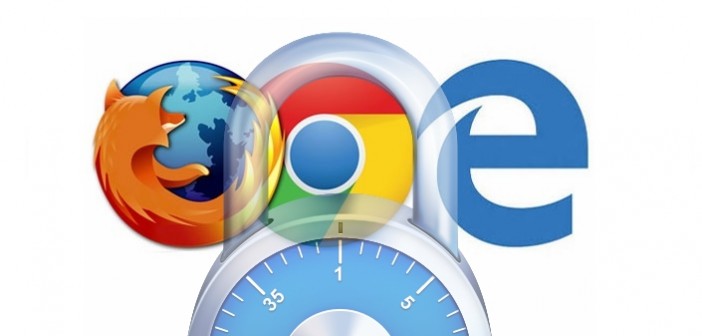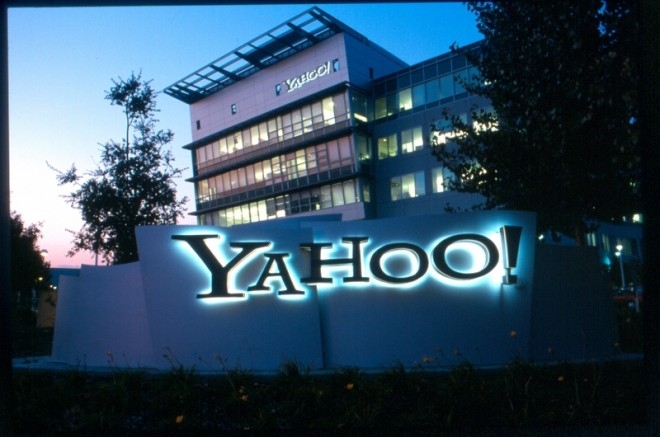The top attorney for the powerful National Retail Federation blasted banks and credit card companies on Tuesday for problems and costs with the massive ongoing U.S. rollout of computer chip cards and chip card readers.
Technology and Trends
IBM tackles 'shadow IT' with a new cloud security tool for enterprises
If there's one thing that can strike terror into a CIO's heart, it's the security implications of the cloud; if there's another, it's the "bring your own" technology trend. Combine the two, and you've got the motivation behind IBM's new Cloud Security Enforcer.
Virtualization doubles the cost of security breach
When a security incident involves virtual machines in either a public or private cloud environment, the recovery costs double compared to that of a traditional environment, according to a new report from Kaspersky Lab.
Facebook Launches M, Its Bold Answer to Siri and Cortana
TODAY, A FEW hundred Bay Area Facebook users will open their Messenger apps to discover M, a new virtual assistant. Facebook will prompt them to test it with examples of what M can do: Make restaurant reservations. Find a birthday gift for your spouse. Suggest—and then book—weekend getaways.
It won't take long for Messenger's users to realize M can accomplish much more than your standard digital helper, suspects David Marcus, vice president of messaging products at Facebook. "It can perform tasks that none of the others can," Marcus says. That's because, in addition to using artificial intelligence to complete its tasks, M is powered by actual people.

Companies from Google to Taskrabbit are engineering products to act as superpowered personal assistants. Some, like Apple's Siri, Google Now, or Microsoft's Cortana, rely entirely on technology, and though they can be used by a lot of people, their range of tasks remains limited. Others, like startups Magic and Operator or gig-economy companies like TaskRabbit, employ people to respond to text-based requests. These services can get nearly anything done—for a much smaller number of folks. M is a hybrid. It's a virtual assistant powered by artificial intelligence as well as a band of Facebook employees, dubbed M trainers, who will make sure that every request is answered.
Facebook's goal is to make Messenger the first stop for mobile discovery. Google has long had search locked up on the desktop: Right now, if I'm looking to treat my summer cold, and I'm in front of my laptop, I begin by googling "cold meds Upper West Side." On mobile, however, I may pull up any number of apps–Google, Google Maps, Twitter–to find that out, or I may just ask Siri. Facebook starts at a disadvantage on mobile because it doesn't have its own operating system, and therefore users must download an app, and then open it. Marcus hopes to make up for that by creating a virtual assistant so powerful, it's the first stop for anyone looking to do or buy anything.
"We start capturing all of your intent for the things you want to do," says Marcus. "Intent often leads to buying something, or to a transaction, and that's an opportunity for us to [make money] over time."
If M can provide a more efficient service than its competitors, Facebook can boost the number of people using it on mobile, and eventually spur revenue from their transactions. That's the kind of win-win Marcus was brought in to accomplish at Facebook, which in June 2014 hired him away from PayPal, where he had been CEO. In less than two years, Facebook has more than tripled Messenger's users to 700 million.
How It Works
To try the new service, users will tap a small button at the bottom of the Messenger app to send a note to M, the same way they might message anyone on Facebook. M's software will decode the natural language, ask followup questions in the message thread, and send updates as the task is completed. Users won't necessarily know whether a computer or a person has helped them; unlike Siri and Cortana, M has no gender.
For now, M doesn't pull from the social data Facebook collects to complete tasks. So, if you request a gift for your spouse, the service will make suggestions based only on your answers to questions it asks you and previous conversations you and M have had. Marcus says that may change "at some point, with proper user consent." The service is free, and will be available to all Facebook Messenger users eventually.
In internal tests, Facebook employees have been using M for several weeks to do everything from organizing dinner parties to tracking down an unusual beverage in New Orleans. "An engineer went to Paris for a couple days, and his friend asked M to redecorate his desk in a French style," Marcus says. "Twenty-four hours later, the desk was decorated with a proper napkin, baguette bread, and a beret." One of M's most popular requests from its Facebook employee testers: the service can call your cable company and endure the endless hold times and automated messages to help you set up home wifi or cancel your HBO.
The Human Element
The thing is: that's a person on hold on your behalf. Facebook's M trainers have customer service backgrounds. They make the trickier judgment calls, and perform other tasks that software can't. If you ask M to plan a birthday dinner for your friend, the software might book the Uber and the restaurant, but a person might surprise your friend at the end of the night by sending over birthday cupcakes from her favorite bakery. "M learns from human behaviors," says Marcus.
Eventually, the service might be sophisticated enough to figure this out on its own, but not soon. Right now, M trainers sit close to the engineering team inside Facebook offices. The company confirms the trainers are contractors but won't say how many there are. Marcus anticipates that over time, Facebook will employ thousands of them, which will represent a substantial economic investment.
The company anticipates the cost will be offset by the revenue growth it is able to realize by capitalizing on M's interactions. As WIRED's Cade Metz explains, Facebook plans to use data generated by the service to feed much more complex AI systems that can reduce the burden on the trainers.
Open for Business
It's not hard to imagine the business opportunities that M could spawn. For one, should Facebook discover a business is getting lots of inbound requests, it could partner with that company to offer a more direct, efficient service over Messenger.
"If, for instance, you have a lot of calls that have to be placed by people to cable companies," says Marcus, "That's a pretty good signal that their customers would actually like a better way to interact with the company and maybe they should have a presence inside of Messenger directly."
Facebook is already helping firms offer customer service through Messenger. At the company's March developer conference, Marcus announced Businesses on Messenger, a feature that allows businesses to send receipts, notify customers their packages have shipped, and provide basic customer service.
Marcus won't offer metrics to suggest whether the feature has caught on among companies, but he says they have shown a lot of interest, and his team is beginning to work out some of the kinks. "We have a lot of threads open between businesses and people, and the engagement is very good," says Marcus. "Now we want to open it to more businesses."
Beyond the Valley
Marcus anticipates that M will expand slowly over time, but that it will eventually reach everyone. As this happens, the array of tasks it performs will certainly grow. Facebook is, by design, rolling out its new assistant in a community in which the users are demographically similar to the M trainers who will be thinking up gifts for their spouses and fun vacation destinations for them.
It's safe to say that most of Messenger's 700 million users around the world aren't looking to book an Uber for a friend's birthday party or choose between Cancun and Maui for February break. Will M be as good at helping users in the Bronx access food stamps? How about coming to the aid of the single mother in Oklahoma who has a last-minute childcare issue? Marcus is up for the challenge, and so, he says, is M.
Darpa funded the research on the DUST Self-destruct chip
Engineers at Xerox PARC have designed a prototype chip capable of self-destructing, it is named DUST, or Disintegration Upon Stress-Release Trigger. If t you are thinking that such kind of things can exclusive of action movies you are wrong, the researchers at Xerox PARC believe that their integrated self-destruct chip could represent the ideal solution for the storage of high-sensitive data, including the encryption keys. Of course, let's think of the application of such kind of technology in military and intelligence sectors.
Microsoft, Google, Mozilla to Kill RC4 in Browsers
Microsoft, Google and Mozilla announced on Tuesday their intention to end support for the RC4 stream cipher in their web browsers at the beginning of 2016.
RC4 has been around since 1987 and it has been widely supported by online services and web applications. However, researchers have demonstrated on several occasions that the cryptographic algorithm is plagued by vulnerabilities that could allow malicious actors to crack it.
A new attack method against RC4-based SSL/TLS communications was disclosed by experts in March. Even more recently, researchers demonstrated that RC4 attacks are increasingly practical and feasible. The experiments they conducted using real devices showed that plaintext recovery attacks targeting the TLS protocol can be successfully carried out in as little as 52 hours.
The Internet Engineering Task Force (IETF) announced in February that TLS clients and servers should never negotiate the use of RC4 when establishing connections. Now, tech giants Microsoft, Google and Mozilla have come to an agreement to completely disable support for RC4 in future versions of their web browsers.
Microsoft says RC4 will be disabled by default in Edge and Internet Explorer starting with early 2016. The company, which has been advising customers to disable RC4 support since 2013, has instructed the owners of web services that rely on RC4 to take steps to prevent any issues.
Currently, Microsoft Edge and Internet Explorer 11 only use RC4 during fallback from TLS 1.2/1.1 to TLS 1.0, which usually happens as a result of "an innocent error," the company said.
Google plans to disable support for RC4 starting with a version of Chrome that will be released in January or February 2016.
"Measurements show that only 0.13% of HTTPS connections made by Chrome users (who have opted into statistics collection) currently use RC4. Even then, affected server operators can very likely simply tweak their configuration to enable a better cipher suite in order to ensure continued operation," explained Google's Adam Langley.
Mozilla says it has been progressively disabling RC4 -- starting with Firefox 37, a version released in March 31, RC4 has been partially disabled. The company will completely kill the cipher in late January or early February 2016, likely with the release of Firefox 44.
"Disabling RC4 will mean that Firefox will no longer connect to servers that require RC4. The data we have indicate that while there are still a small number of such servers, Firefox users encounter them at very low rates," said Mozilla security engineer Richard Barnes.
Yahoo’s Very Bad Idea to Release Email Addresses
Yahoo is releasing inactive Yahoo IDs so that users can score a better email address. This means you can finally have This email address is being protected from spambots. You need JavaScript enabled to view it. instead of This email address is being protected from spambots. You need JavaScript enabled to view it., for example. Sounds great, right? It’s actually a spectacularly bad idea.








